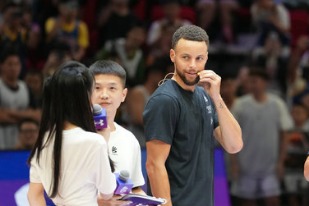Cracking down on toxic sports culture

The 2024 Paris Olympic Games saw some extreme behavior by Chinese fans that sparked widespread controversy. The most notable instance occurred during the women's table tennis singles final, where the audience overwhelmingly supported Chinese paddler Sun Yingsha while booing her teammate, Chen Meng.
Recently, the China Table Tennis Association issued a statement condemning the corrosive effects of "fan culture" and expressing full support for the authorities' crackdown on illegal behavior within sports fan circles.
Although "fan culture" has been developing for a long time, it is only in recent years that it has begun to engulf China's sports industry.
This phenomenon is not unique to China. In 2019, during the Wimbledon final, Novak Djokovic faced uncomfortable moments as fans of Roger Federer applauded his mistakes and jeered at certain points, despite Djokovic's inspiring performance to claim his fifth Wimbledon title.
Originating from the entertainment industry and driven by idol economics, fandom has evolved into an organized and specialized subculture centered around idols as symbols. This culture has gradually spread into the sports industry worldwide.
While a growing number of fans can bring more exposure to sports events, driving the prosperity of professional sports, it also has its downsides. Fan circles tend to be exclusive, making it difficult for different groups to appreciate athletes outside their own "idols". This can lead to extreme and irrational behaviors.
These behaviors pose serious threats to the well-being of players, diminish the engagement of future fans, and tarnish global sportsmanship.
Many young fans become obsessed with idolizing their favorite athletes while attacking others. In this process of "creating gods", athletes are often portrayed as omnipotent and invincible, expected to excel both on the field and in their personal lives.
On the field, extreme behaviors such as booing and shouting disrupt the normal flow of games. Off the field, athletes may face gossip, harassment, and even attacks, both online and offline.
Since the 1980s, soccer hooliganism in the UK has highlighted the dangers of such conduct, with opposing fans violently clashing during competitions.
Moreover, fans' exclusive support for certain players on the same team can lead to online arguments and personal attacks, undermining team solidarity.
This unhealthy "fan culture "can also have a direct or indirect impact on the development of young people's values, eroding the spirit of fair competition and endangering the future of global sports. It is easy for youth to imitate these frenzied actions rather than appreciating the true qualities of athletes and the essence of sportsmanship.
In contrast to "fan culture", the Olympic spirit emphasizes diversity and inclusion. Fans should be encouraged to respect the efforts of all athletes and take pride in collective national achievements. The true spirit of sports lies in perseverance and resilience, celebrating success while acknowledging possible failure — values that are more important to the development of sports.
By maintaining a healthy distance between fans and athletes, audiences can enjoy thrilling sports events and contribute to a more positive and inclusive sporting culture.




































